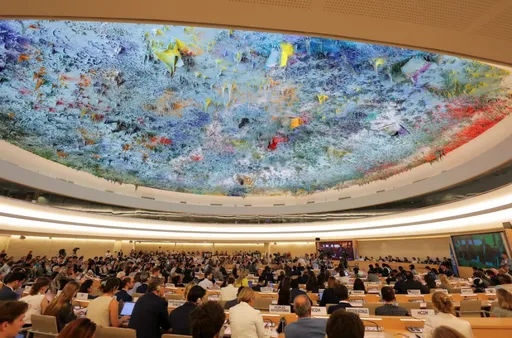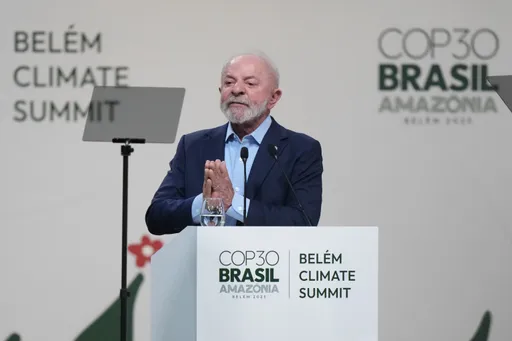Charred, drained or swamped, built up, dug out or taken apart, blue or green or turned to dust: this is the Earth as seen from above.
As the world commemorates Earth Day on Saturday, the footprints of human activity are visible across the planet’s surface. The relationship between people and the natural world will have consequences for years to come.
In Iraq, lakes shrivel and dry up as rain fails to fall, weather patterns altered by human-made climate change.

Lake Sawa is the latest case in Iraq's country-wide struggle with water shortages that experts say are induced by climate change, including record low rainfall and back-to-back droughts. (AP)
In Florida, the opposite problem: too much water clogs roads and neighbourhoods, trapping cars and stranding people, with the burning of fossil fuels again partially to blame for erratic conditions.

A pair of waterlogged cars sit abandoned in the road as floodwaters recede in the Sailboat Bend neighborhood of Fort Lauderdale, Florida. (AP)
In megacities, like the rapidly growing Kuala Lumpur in Malaysia, skyscrapers shoot upwards while in Guyana excavators dig deep into the earth for deposits of gold.

The Tassawini Gold Mines are visible amid trees in Chinese Landing, Guyana. (AP)
In California, surfers straddle waves in the ocean. In India, fishing nets sink into the lakes and in New Jersey, solar panels float in ponds.

An array of solar panels float on top of a water storage pond in Sayreville, New Jersey. (AP)
Residents of neighbourhoods in Utah, meanwhile, find water where it shouldn’t be – coursing through their streets and homes.

Local officials issued evacuation orders for at least 20 homes as temperatures spiked and snowmelt coursed through the streets in Kaysville, Utah. (AP)
On land, farmers are at the whims of the weather, with patterns being altered by climate change. In Argentina, parched lands turn crops to gray.
Just outside Barcelona, new cracked, thirsty water beds appear after months of little to no rain.

An old boat is photographed half-buried after the water level dropped at the Sau reservoir, about 100 km north of Barcelona, Spain. Spanish Prime Minister Pedro Sánchez told parliament this month that "drought is going to be one of the central political and territorial debates of our country over the coming years." (AP)
Earth Day first began in 1970, heralded as the birth of an environmental movement that encouraged people worldwide to protect the natural world.
Today, it also urges action to combat climate change, which has accelerated in recent decades.
Each year, scientists have warned that the burning of fossil fuels is heating the planet and bringing us closer to breaching internationally agreed upon limits of warming, which would have major effects, such as more extreme weather events.
Around the world, activists of all ages are keeping the pressure on governments and companies to do more to protect the environment and combat climate change.
READ MORE: 'Earth is dying': Climate protesters launch four-day mass action in London

Shamans perform a ritual using a geographic globe, calling for the earth's protection from contamination, one day before Earth World Day on San Cristobal hill in Lima, Peru. (AP)




























